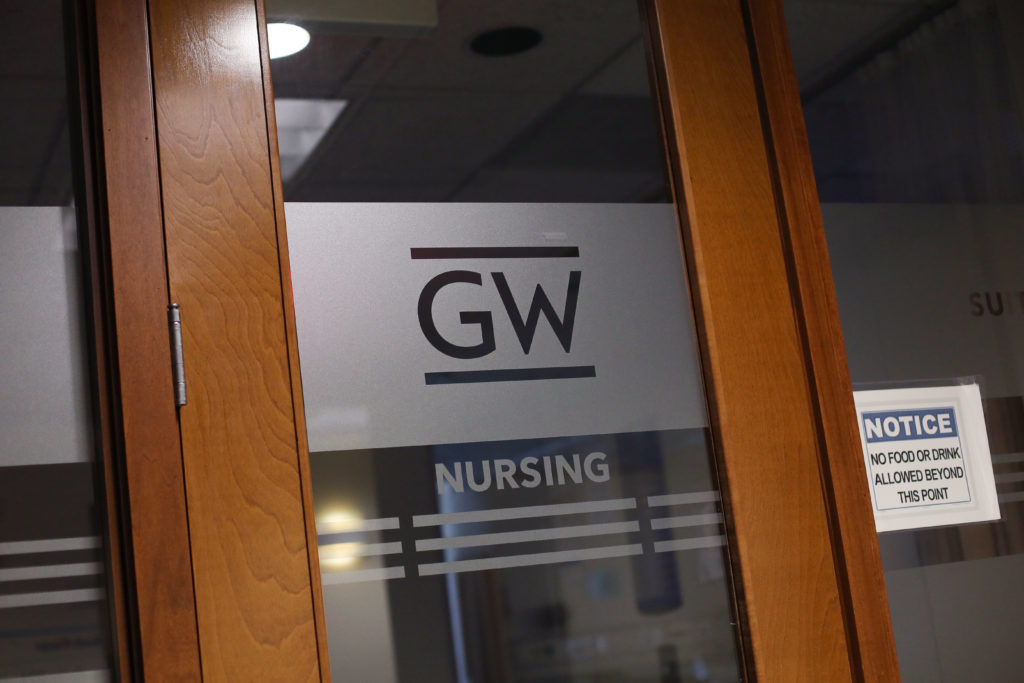A group of nursing students visited Africa last month to provide medical care and educate local populations about heart health.
Eleven nursing students traveled to the Mukono district in central Uganda to provide training and education to people with limited access to health care in partnership with the nonprofit health organization Omni Med, officials said. Karen Dawn, an assistant professor of nursing, said she led the group, which worked to target, prevent and treat hypertension and malaria – two leading causes of death in Africa.
Dawn said the trip was the third she’s hosted – and the group’s first trip to Africa. In spring and fall 2017, she brought students to screen patients for hypertension in Haiti.
She said that with the help of Omni Med, officials have expanded the program, most recently to work on establishing preventative measures against malaria. Dawn said that before she started taking nursing students on the trips, only medical students participated.
“This is the best nursing I’ve ever done,” she said. “This is the work I am most proud of.”
Dawn said that on a trip in fall of 2017, students taught 48 village health trainers – members of the community who can treat medical conditions – and had a 95 percent success rate in ensuring the trainers remember how to treat for diarrhea and advise about nutrition and healthy eating. She said this year, the group of students retained new village health trainers, where 60 to 70 village health trainers were taught how to take blood pressure.
“It was rewarding to talk to the VHTs they talked to last year,” she said. “They kept track of records and were very proud of their record numbers of villagers they had treated.”
She added that about a third of the people in the area have high blood pressure, but most have never had their blood pressure checked.
Dawn said educational material for the village is tailored to what community members tell the group they need, like stress management techniques and malaria prevention. The students created informational handouts translated into Lugandan, the native language of Mukono, and the cohort also focused on educating community members about intimate partner violence.
She said a group of students will go back to Uganda in March over spring break to assess progress made by the village health trainers. She said she hopes to see the program expand in future semesters, especially if the nursing school can obtain external funding to allow more students to go on the trip.
Dawn said the trip in the spring has already garnered about two-thirds more applications than the school can fund, and she hopes the group can complete another two-week trip with the additional interested students.
Omni Med, the nonprofit health organization that partnered with the nursing school, was founded by Edward O’Neil, a graduate of the School of Medicine and Health Sciences. Omni Med oversees programs like the Uganda trip that are “sustainable and fit within locally identified needs.” The group also sponsors other programs sending undergraduates to complete hands-on work in impoverished parts of the world, according to Omni Med’s website.
“The GW nurses come in twice a year, and they’re really a catalyst in getting this program started,” O’Neil said. “It’s a great partnership.”
Kristina Ray, a nursing student in the accelerated bachelor’s degree program who went on the trip, said treating patients with high blood pressure remains a top priority for the nursing students because of the low levels of detection in Uganda and high levels of fatality.
“It’s the silent disease,” Ray said. “People have high blood pressure and they don’t know about it, and then next thing you know, they drop dead from a stroke.”
Ray said the main focus of the program is education and prevention. While the nursing students practice taking blood pressures of the Ugandan patients, she said the program also works to teach village health trainers.
“They are able to sustain this when we leave and do it on their own, so I think that’s really important,” Ray said.
She said the students fund their own trips to Uganda to help pay the overall price of more than $1,200, which goes toward travel expenses and paying for credits they receive through the program. But once the students arrive, housing and food are covered by Omni Med, Ray said.
Ray said the hands-on experience from Uganda will give her practical experiences to use in her education and career now that she has returned to the United States.
“I think about when I go to the hospital and I start working, especially since not everyone can afford medication, letting people know that there are lifestyle and dietary decisions that they can make to be healthy instead,” she said.





